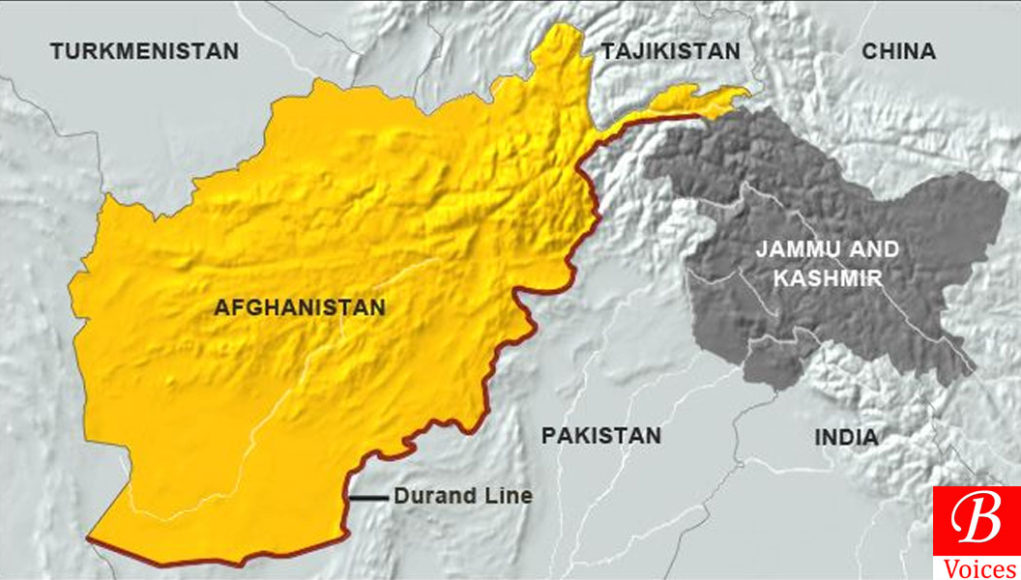 Tahira Khan
Tahira Khan
In response of the recent wave of terror which has spread violent message across the globe, we have encountered beleaguered mish-mash of opinions, ideologies and narratives which, to some extent, has tried to comprehend the complexity of this violence and ultimate fear. Despite having debate on the required fault lines, we witnessed a parade of foolishness which was based solely on two things i.e., the contempt for Afghanistan and sealing of the border.
Let’s suppose Afghanistan is responsible for these on-going terrorist attacks.
Afghanistan is a hot mess which doesn’t even have control over its capital i.e., Kabul. The large parts of the country are either under insurgents (Taliban/ISIS), or US administration or NATO (North Atlantic Treaty Organization) forces. It is, indeed, because of that dysfunctional government which enabled us to pursue surgical strikes alongside the border.
On one hand we have Afghanistan- a war torn area- and on the other hand we have Pakistan- the mighty nuclear one- and, now, we have to decide who is responsible for what.
The question arises how a weak state could forge such terrorist activities which in the very first step is, even, unable to protect its own territorial boundaries? This question can be asked some other way around. Why Pakistan allowed Afghanistan (a comparatively failed state) to accomplish such ventures? We surely have intelligence agencies for such purposes to spot any kind of foreign secret mission going in our land. To be very honest, our intelligentsia, both the civilian and military, have been unable to dismantle any major terrorist attack, up till now. Is Afghanistan also responsible for that? Surely, not.
So, we can say that Pakistan has found an easy scapegoat in Afghanistan and this whole blame game is settled to avoid answering crucial questions based on our security apparatus.
Raising Afghan narrative would deflect the responsibility, at least, for a while but in the end the monster will be a more worsen one, unable to be controlled and defeated. The long drawn out battles need careful measures, counter-narratives and defense strategies not such policies and statements which could be used as a source of titbits only.
Is sealing border the only possible solution left ahead?
In the aftermath of newfound vigilance only local people deem affected by the border closure strategy, especially, in economic terms. According to some rough estimation, one million Pakistanis will lose their respective jobs if and only if the closure remains intact for the next few weeks.
According to some rough estimation, one million Pakistanis will lose their respective jobs if and only if the closure remains intact for the next few weeks
The abrupt shutdown of gates looks very irrational because of the signed Afghanistan-Pakistan Trade and Transit agreement (APTTA). Afghan ambassador to Pakistan Omer Zakhilwal called it illegal and raised concerns over the issue. He recorded his response in the following words;
“As part of the quick de-escalation of the prevailing tension between Afghanistan and Pakistan, as agreed in our talks with the relevant Pak authorities a couple of days ago, Torkham, Spin Boldak and other crossing points should have reopened by now but unfortunately still remain shut.”
Recent events which led to sealing of border has soured the already tensed Pak-Afghan relationship along with adversely disturbing local people and the economy of both the states.
It has already been anticipated by Pakistan Tehreek-e-Insaf (PTI) Chairman Imran Khan and other KP leaders that on the completion of Iranian port, India will try to snatch a big part of Pak-Afghan trade with its influence and better economic terms. Arguably, India has been able to have that much impact just because of our stupid knee-jerk military actions and political blame games which in the end bring no fruit but fatal consequences.
Iran, Afghanistan and India has already been done with the dealing of some legal routes via Chabahar port and trilateral trade among them. Keeping in view of this geo-political scenario, are we in position to further aggravate our relations with Afghanistan? Certainly, not.
For a peaceful region, both Afghanistan and Pakistan need to develop their collaborative terms in accordance with their mutual interest and common enemy. Laying blame only on Afghanistan is not justifiable. They have capacity issues in dealing with insurgents, especially Afghan Taliban, which need our co-operation in different spheres of life i.e., political, economic and social.
Let’s have some soul searching of our own policies which we put forward in the wake of terrorism.
Our counterterrorism and counter-insurgency strategies got lethal setback in the form of Quetta commission report led by Supreme court Justice Qazi Faez Isa. Along with pointing out stunning failures in our approach, the report showed that our institutions are still confused about the notion of terrorism. The top brass institutions have been adding fuel to the fire by fighting inner terror groups while financing others. Surely, it’s high time to let go of past policies. The lessons are right before us but, unfortunately, we will not learn anything from it.
National Action Plan (NAP) and Zarb-e-Azb operation are entirely tired arguments which show our ultimate failure and, somehow, generate conspiracy theories. The current scenario is asking for the resolution of vexing issues that are needed to be minutely, comprehensively and thoroughly studied; not such false theories which would lead us astray.
A very deep introspection shows that fault lies within us. Our failure to generate counter-narrative and reformation of religious injunctions, improper defense strategies (Eliminating one group while supporting others/ proxies) and weak institutions are the part of the problem which, actually, needs immediate attention. Make it sure, for all these loopholes Afghanistan is not responsible. So, chanting Afghanistan, Afghanistan and Afghanistan will not be advantageous in any sort of sense.
We are scared of what doesn’t even exist. We, most frequently, celebrate our ignorance and disdain knowledge, relationships, insight, art, shared values. We don’t like painstaking efforts being put forward for facts and are driven by impulse, emotions and some notorious ideologies. We are, in fact, living in a shallow state. This decline is old but now it seems to be institutionalizing by both the political and military elites along with the general masses who care little for truth.
Writer is a team member and a Student of BS (Hons) Political Science in University of the Punjab, Lahore. She hails from Loralai District. Click here to read previous articles written by the author.
Disclaimer: Views expressed in this article are those of the author and Balochistan Voices not necessarily agrees with them.
Share your comments!








